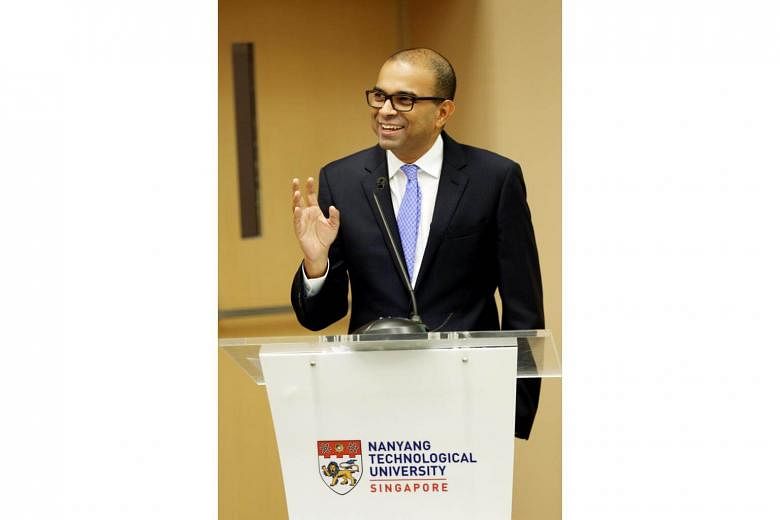SINGAPORE - As students with special needs move on to study at institutes of higher learning (IHLs), like universities and polytechnics, some find it challenging, noting that they received less help than when they were in studying in primary or secondary school.
To ensure that such students do not find it too overwhelming while in IHLs, Senior Minister of State for Education Janil Puthucheary on Thursday (Oct 5) urged these institutes to look at what the philosophy should be when it came to helping special needs students develop. He added that the Education Ministry should then come on board to support this philosophy.
Dr Janil however noted that some special needs students had said that the experience in IHLs had led them to become more independent.
The challenge for IHLs is in giving these students enough support so they do not feel overwhelmed but not too much such that they feel mollycoddled.
"From secondary schools to higher education, all students go through the transition of becoming an adult and becoming their own person," he said. "When it comes to interventions that we put in place for students with special needs... are we increasing their independence or are we removing that empowerment a little bit too much?"
Dr Janil was speaking at an inaugural conference on how the IHLs can better integrate special needs students.
The conference, titled Inclusive Education in Higher Education, was hosted by Nanyang Technological University. About 150 people attended, including representatives from the institutes and social service organisations.
Ms Amanda Chong, 23, a National University of Singapore social work undergraduate who is blind, suggested that special needs students be given more choices on the help they prefer to receive.
She said: "I think it's about giving people our age self-determination - when we're young, we need much more guidance and support. But once we're an adult, it's probably good for people to ask us if we need help and give us choices, in terms of how we wish to learn and move around campus.
"For instance, if someone is doing an internship, you can ask if he needs a certain level of support and if he says no, that's fine. That way, he's just being his independent self."


